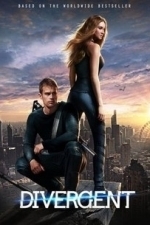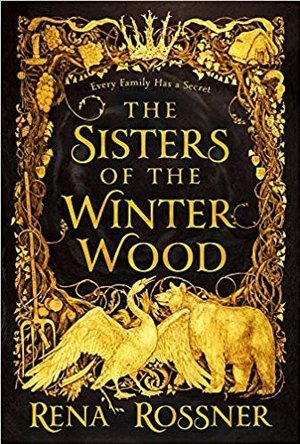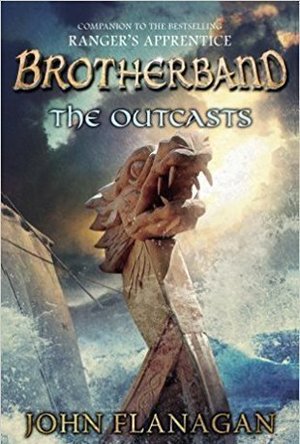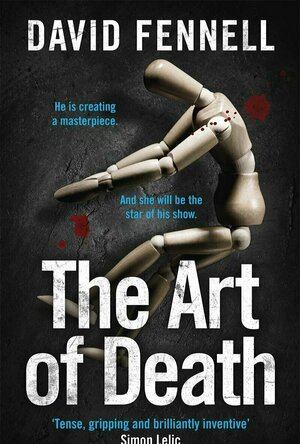LoganCrews (2861 KP) rated Divergent (2014) in Movies
Sep 20, 2020
Eleanor Luhar (47 KP) rated The Sisters of the Winter Wood in Books
Jun 24, 2019
This book is set in Dubossary, narrated alternately by Liba and Laya. Liba is the older of the two, the only children in their family. They are Jews, and while this book was hugely about their faith and discrimination against them, it is not only about that. This book was like a new fairytale. It had magic in every page, and was genuinely exciting to read. There were tragic elements, tons of romance, and even a sense of suspense.
The girls are left in their home alone when their parents rush off to Kupel in a family emergency. But just as they plan to leave, the girls' Mami decides it's time to tell her daughters who they really are: a bear and a swan.
As I said, I will not delve into the story too much. But I really loved the story involving Laya and the Hovlin brothers, as well as Liba's own internal struggles. Laya's romance at the end of the book was, in my opinion, a little rushed and unexpected, but that's the only real downside I have.
The writing was lovely - it included Yiddish and Hebrew dialect, which was translated in the Author's Note at the end. (A quick side note; I actually read the entire Note, which is really quite rare for me.) And Laya's account, in particular, felt so poetic. She was definitely my favourite character, as much as I love Liba, too. And the relationship between the girls is so, so lovely. No matter how much they try to push each other away, they are always there for each other in the end.
As I enjoyed this book so much, I tried to talk about it with my boyfriend. However, I soon discovered that describing this story is really quite a feat. It was full of little details and twists that just made the story.
I really liked this book. As I only received an ARC and not a final edition, I didn't have the official layout, which I can imagine may add to it also. Even so, I'm easily giving this 4.5 to 5 stars.
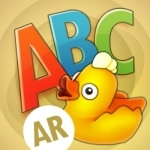
ABC Book 3D: Learn English
Games and Education
App
Learn letters in a virtual playground! “ABC Book 3D” is an interactive book full of surprises...
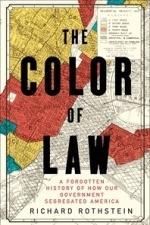
The Color of Law
Book
In this groundbreaking history of the modern American metropolis, Richard Rothstein, a leading...
History Politics
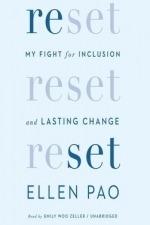
Reset: My Fight for Inclusion and Lasting Change
Book
SHORTLISTED FOR THE 2017 FINANCIAL TIMES AND MCKINSEY BUSINESS BOOK OF THE YEAR | NAMED A BEST FALL...
Business biography technology
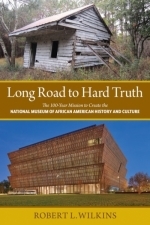
Long Road to Hard Truth: The 100 Year Mission to Create the National Museum of African American History and Culture
Book
In Long Road to Hard Truth: The 100 Year Mission to Create the National Museum of African American...
History social sciences
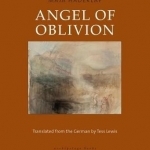
Angel of Oblivion
Book
Haderlap is an accomplished poet, and that lyricism leaves clear traces on this ravishing debut,...
Hazel (1853 KP) rated After Us (Before & After, #2) in Books
Dec 14, 2018
After Us is the second book in the Before and After series by Amber Heart. The story follows on from the events in the first book, Before You, and how the characters are coping in the aftermath. I have not read the first book however that was not a problem as After Us was written in such a way that made it easy to understand what had happened previously.
The story alternates between 18 year old Melissa and Javier's point of views. Melissa is hiding her scars from the operation to remove the cancer cells from her body and living with the fear that it may not have been successful. Since her best friend Faith has moved away she has kept this to herself, worrying that other people would be repulsed by her. Javier, on the other hand, is wearing a metaphorical mask to hide the pain he feels at the loss of his cousin and best friend Diego. Instead of laying the past to rest he is determined to avenge Diego's death.
After Us is essentially a love story about characters who hide the raw pain they feel from everyone, including those closest to each other. As well as these problems they also have to deal with racial discrimination. Javier's family originate from Cuba and only moved to the US for a better life. Javier's mother, however, has a "only-date-Latinas" rule as she believes American girls are not good enough for her sons. This is somewhat like the famous story of Romeo and Juliet where the families want nothing to do with each other.
As well as a love story, After Us deals with other themes from medical problems to drug dealing. Heart, rather than writing about the affects of taking drugs, concentrates on the people behind the dealing. Drug Gangs can be just as dangerous as the substances as they involve violence that often result on fatal injuries.
On the whole the storyline could have delved deeper into the characters individual stories and the ending could have been stronger. Although there was a surprise plot twist, the book finished rather quickly with everything suddenly being resolved and no repercussions.
As already mentioned it is not vital to read the previous book in order to understand After Us however, from what I understand, Before You is written from Faith and Diego's points of views. Overall this book was ok for a quick read but I would not label it as anything special.
Hazel (1853 KP) rated The Outcasts (Brotherband Chronicles, #1) in Books
Dec 17, 2018
<i>The Outcasts</i> is the first book in the <i>Brotherband Chronicles</i> about teenaged Hal and his small team of misfit friends. Set in times when to be a warrior and be part of a crew on a wooden ship were some of the highest honours, all boys when approaching the age of sixteen have to endure months of exhausting training. The popular boys form together Brotherbands containing the candidates with the most potential leaving Hal and seven other social outcasts to form the final group: the Herons.
Despite their severe disadvantage, Hal must encourage the Herons to use their brains to outwit the strength of the other Brotherbands in order to defeat them at the challenges the instructors set and become the ultimate winners.
Hal is instantly a likeable character. He is talented, intelligent, kind and thoughtful and makes an excellent and inspiring team leader. Although this book is set in a fictional historical period, there are many things that a young reader can relate to, for example bullying and racial discrimination.
As well as the Brotherband training there is a lot of ship and sailing references that may appeal to male readers of a certain age. The author, John Flanagan, realizes that many people today would not be familiar with the ins and outs of sailing and has included a glossary explaining numerous nautical terms that are used during the novel. These are defined in an easy to understand way, as the target audience is those of ages ten and upwards.
There are a limited amount of female characters, which suggests that these chronicles are written with male teenage readers in mind. Despite this it is still an enjoyable, exciting book regardless of your gender. The character developments are excellent and the Herons are an admirable team.
Initially it took a while to get into the story. The reader does not meet Hal until part two of four as it begins twelve years prior to the main timeline. Throughout this section the only characters are adults, which the target audience is less likely to relate to. For this reason, and due to some of the violence, I personally would recommend this book for ages thirteen and older rather than the “10+” suggested on the back cover.
Overall <i>Brotherband: The Outcasts</i> is a brilliant book and it was refreshing for a young adult novel not to revolve around a romantic relationship. The next book in the series looks as promising as the first, which has left us wanting to know more!
BookInspector (124 KP) rated The Art of Death in Books
Jul 1, 2021
The narrative of this book always changes, from the investigation it jumps to new abductions, to personal character’s lives. All these things made the book very fast-paced and enjoyable for me. Even though it is a debut novel, I felt like this book is a part of a series because of the way the author incorporated the details from DI Archer’s past. I felt like I missed the investigations that happened in the past. 😀 I found the plot very multi-dimensional, absorbing and creepy. The topics discussed in this book were grief and loss, traumatic experiences, workplace discrimination, many mental health issues, drug use, domestic and other violence and many many more.
The writing style is very easy to read and enjoyable, but at the same time, it felt unusual, different. (I can’t describe how though 😀 ) The author has experience in cybersecurity, and it was interesting to see, how he highlights the mistakes people do in their daily lives when it comes to our social media and online presence. There are a lot of gory murder scenes in this book, so it might not be suitable for sensitive readers. The atmosphere and the setting of the novel constantly change, depending on the perspective, and I really enjoyed it. The chapters are pretty short, and the whole novel was a page-turner for me. I really loved the ending, it left me very intrigued, and I can’t wait for another book. 🙂
So, to conclude, it is a very rich novel, full of layered and diverse characters as well as a plot that is fast-paced and always changing. I really enjoyed this book, it highlights so many various topics and social issues, you just need to find it.
